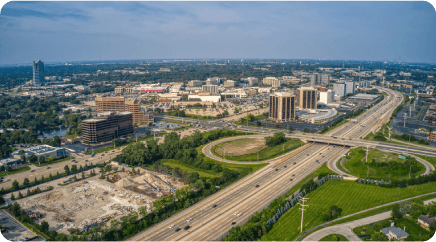Dealing with Addiction, IDFPR Investigations, and License Suspension
 Healthcare workers are responsible for helping others care for their bodies. But doctors, nurses, psychologists, pharmacists, and dentists are people too, and sometimes they struggle with the same issues as others can. When addiction threatens your career, an investigation by the Illinois Department of Financial and Professional Regulation (IDFPR) can seem like an impossible obstacle. For healthcare professionals, an investigation often feels like the first step toward losing years of hard work. But Illinois law does allow professionals to address addiction issues while protecting their licenses in some cases.
Healthcare workers are responsible for helping others care for their bodies. But doctors, nurses, psychologists, pharmacists, and dentists are people too, and sometimes they struggle with the same issues as others can. When addiction threatens your career, an investigation by the Illinois Department of Financial and Professional Regulation (IDFPR) can seem like an impossible obstacle. For healthcare professionals, an investigation often feels like the first step toward losing years of hard work. But Illinois law does allow professionals to address addiction issues while protecting their licenses in some cases.
If you are facing an IDFPR investigation for addiction or substance-related issues, you need to understand what is at stake. As of July 2025, Illinois professionals can face license suspension or revocation for conduct tied to substance abuse, but there are also options for rehabilitation and defense. Our Illinois medical license defense attorney can explain your options and what to do next.
What Happens if IDFPR Learns About Your Addiction?
IDFPR investigates any reports of impaired practice, criminal charges related to controlled substances, or failure to comply with professional standards. This applies to pharmacists, nurses, doctors, and other licensed professionals in Illinois.
Once the agency begins an investigation, it may request medical records, conduct interviews, and examine criminal court files. Even a DUI arrest or a failed drug screen can trigger IDFPR involvement. If they believe that addiction has impacted your professional conduct, you could face:
-
Temporary license suspension while the investigation is pending
-
A formal complaint and administrative hearing
-
Revocation or permanent loss of your license
Can Getting Treatment or Monitoring Help Protect Your Professional License?
Illinois law recognizes that substance abuse is a medical condition, not simply a moral failing. In some situations, entering into an approved treatment or monitoring program can show your commitment to recovery and may persuade IDFPR to issue a probationary license instead of suspending or revoking it.
For pharmacists and other healthcare professionals, programs like the Illinois Professionals Health Program (IPHP) provide confidential assistance. However, IDFPR’s decisions are discretionary, and you will need strong legal advocacy to ensure your rights are protected throughout the process.
Work with a License Defense Attorney Who Understands Healthcare
When your livelihood is on the line, you need representation from someone who understands both the legal and professional aspects of your situation. An attorney who is also a registered pharmacist — and who has served as an expert witness in pharmaceutical cases, including those involving controlled substances — brings a unique perspective to your defense. This insight can help your lawyer address the technical aspects of addiction-related complaints and argue on behalf of your professional knowledge and commitment to recovery.
Contact a Peoria, IL Professional License Defense Lawyer for Pharmacists
Do not face IDFPR alone. Call our dedicated Illinois professional license defense attorney at The Law Offices of Joseph J. Bogdan, Inc. today by calling 630-310-1267 for a free consultation. With a background in pharmacy and extensive experience defending professionals, our firm is ready to help you protect your career and rebuild your future.









